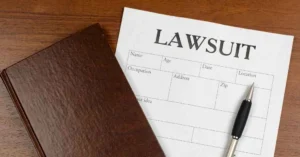In Indonesia, the role of intellectual property consultants is crucial in safeguarding the interests of inventors, creators, and businesses. These consultants specialize in various aspects of intellectual property law, especially copyrights, patents, and trademarks. By seeking assistance from reputable IP consultants in Indonesia, individuals and businesses can navigate the complexities of intellectual property rights and ensure their innovations are adequately protected.
The Importance of Legal Protection for Intellectual Property Works
Any work produced by an individual or a company needs to be protected by intellectual property law. This is essential to create a competitive environment that fosters the development of inventions that can contribute to economic, technological, and societal advancement. In safeguarding intellectual property rights, not only are moral rights protected, but economic rights are also essential to ensure inventors can benefit financially from their creations. Economic benefits are crucial for creators to drive the progress of their nation’s economy.
Methods for Commercializing Intellectual Property Works
A work produced by an individual or a company must be protected by intellectual property law. This is necessary to create a competitive climate that will drive the creation of inventions beneficial for economic, technological, and societal progress. In protecting intellectual property rights, moral rights are protected, and economic rights are also essential to ensure that inventors can gain material benefits from their creations or inventions. Financial benefits are crucial for creators to encourage the advancement of their country’s economy.
The activity of turning intellectual property assets into commodities is called commercialization. Generally, there are five ways to commercialize intellectual property that we possess:
- Licensing: Licensing is permission granted by the intellectual property rights holder, either exclusively or non-exclusively, to the licensee based on a written agreement to use the intellectual property rights for a specific period and under particular conditions. The licensee has the right to use the intellectual property owned by the licensor within the agreed-upon boundaries and in compliance with applicable laws and regulations. The transfer of ownership in a license is limited and different from a sale, where all rights are transferred.
- Sale (Assignment of Rights): The activity of selling or purchasing intellectual property is a one-time transaction. The intellectual property is bought or sold at an agreed price. Unlike sales, where the rights are entirely transferred, the licensor retains ownership of the intellectual property and can still exploit it in licensing.
- Franchising: Franchising is a part of licensing where the intellectual property owner gives the franchisee the right to replicate the entire business concept in a different location. The franchisor (owner) provides ongoing support and training to ensure the preservation of the authenticity of their business concept. Franchises are commonly used for commercializing commercializing trademarks.
- Joint Ventures: Joint ventures can be understood as collaborations between two or more parties to achieve a specific goal or fulfill a particular project, sharing risks and resources. Since the parties generally bring their intellectual property into such joint ventures, commercializing their existing intellectual property often becomes one of the objectives. Such arrangements are advantageous as they allow the exploitation and development of intellectual property while reducing investment burden and risks, which are shared among the parties. However, unequal expertise among the parties can result in an imbalance of intellectual property assets and investments contributed by all parties.
- Spin-off: A spin-off is a separate legal entity created by the intellectual property owner with the primary objective of commercializing that intellectual property. They typically act as a bridge between the market and the owner, transforming the intellectual property subject into marketable products and releasing them into the commercial market. Thus, spin-offs often serve as an essential means of technology transfer within the market.
Tips for Commercializing Intellectual Property Products
Commercializing intellectual property products is like establishing a business system where, as the creator, you can profit from it. However, commercializing intellectual property works should be done with proper steps and strategies. Seeking legal counsel from experts is crucial to ensure that your actions comply with the law and avoid any violations that may lead to losses in the future. For instance, in making licensing contracts, the parties involved should consult on the clauses to ensure compliance with applicable laws and to be fair to all parties.
New Services at Am Badar & Am Badar Law Firm
As an IP law firm with five decades of experience and a team of seasoned experts, we can be relied upon to handle all your legal needs. Recognizing the challenges and opportunities in contributing to this field, we at Am Badar & Am Badar have started to evaluate and enhance the quality of our services. Both national and international clients have also trusted us to represent them in legal documentation and court proceedings. If you want to commercialize your intellectual property through our consulting services, don’t hesitate to contact us at ambadar@ambadar.co.id.
References:






